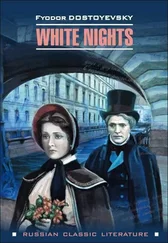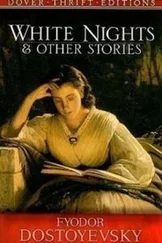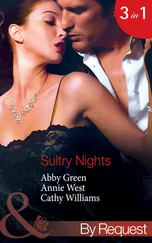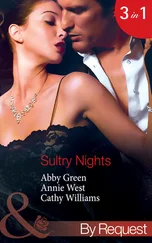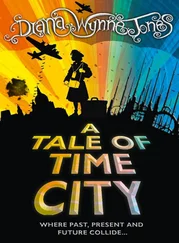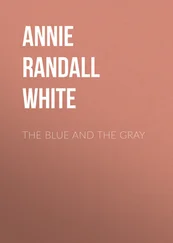Annie DeWitt - White Nights in Split Town City
Здесь есть возможность читать онлайн «Annie DeWitt - White Nights in Split Town City» весь текст электронной книги совершенно бесплатно (целиком полную версию без сокращений). В некоторых случаях можно слушать аудио, скачать через торрент в формате fb2 и присутствует краткое содержание. Год выпуска: 2016, Издательство: Tyrant Books, Жанр: Современная проза, на английском языке. Описание произведения, (предисловие) а так же отзывы посетителей доступны на портале библиотеки ЛибКат.
- Название:White Nights in Split Town City
- Автор:
- Издательство:Tyrant Books
- Жанр:
- Год:2016
- ISBN:нет данных
- Рейтинг книги:5 / 5. Голосов: 1
-
Избранное:Добавить в избранное
- Отзывы:
-
Ваша оценка:
- 100
- 1
- 2
- 3
- 4
- 5
White Nights in Split Town City: краткое содержание, описание и аннотация
Предлагаем к чтению аннотацию, описание, краткое содержание или предисловие (зависит от того, что написал сам автор книги «White Nights in Split Town City»). Если вы не нашли необходимую информацию о книге — напишите в комментариях, мы постараемся отыскать её.
Annie DeWitt
Granta
Believer, Tin House, Guernica, Esquire, NOON
BOMB, Electric Literature
American Reader
Short: An International Anthology
Gigantic
Believer
White Nights in Split Town City — читать онлайн бесплатно полную книгу (весь текст) целиком
Ниже представлен текст книги, разбитый по страницам. Система сохранения места последней прочитанной страницы, позволяет с удобством читать онлайн бесплатно книгу «White Nights in Split Town City», без необходимости каждый раз заново искать на чём Вы остановились. Поставьте закладку, и сможете в любой момент перейти на страницу, на которой закончили чтение.
Интервал:
Закладка:
As I descended the staircase the next morning, Father was sitting in the old club chair in the living room. The chair had been positioned so as to face the television. From Father’s stillness, I thought he’d drifted off while watching the late nights, until I realized the screen was blank.
“It’s just me, Pop,” I said, not wanting to surprise him.
The way his eyes looked in my direction and then drifted, he seemed hardly to recognize me, any sign of acknowledgment in his face or his posture replaced by slack jaw and glaze. His cheeks and the broad expanse of his forehead had lost their hue. Even his features looked shrunken.
I stood in front of him for several moments hoping he’d adjust to the presence of life in the room.
The light that day was excruciating. The sun blasted through Mother’s windows with the kind of brilliance that bleeds landscapes of their color. The rug lost its grain. The room felt empty and cube-like. Everything in it appeared balded and gray.
Looking at Father with his back to the row of windows, when I shifted my head various parts of his body disappeared in the glare as though through them I could see out the window and beyond. Beyond him I imagined the image of Mother beneath the apple trees in the yard sowing the bed of begonias which lined the stone wall where our property met the road. Her skin was tan and leathery. Her breasts bounced as she bent over where she was not entirely buttoned up. She worked from the waist, pulling up small patches of green where they had raised their heads above ground. An ant climbed the inside of her leg. “Look at all these cues,” she said, straightening up for a moment, surveying the rows of wild flowers that shifted in the breeze. Inside her, I saw the reflection of the window at Father’s back. If I looked into it I saw into her stomach, the small pit where she kept all her food. I could taste the bits of roughage — dried apricots and bites of asparagus — mixed in with acid that had made its way down into her stomach from the hollow of her cleft. When I looked through it and beyond, I saw the old ceramic tub across the street where the Shetland was buried in Otto’s field. When I stood in that spot, a good clean breeze ruffled the back of my hair.
“It’s not as bad as it looks,” Father said from his chair.
11
When it came to private property, the Steelhead brothers taught me everything I know. They lived alone in a big brown house on the top of the mountain. According to local legend, they were fatherless. What they saw of their mother was what time she had between men. It was said they killed dogs in their basement. Rumor had it, they even tried killing a pony once. Tethered it to a stake in back of their house and watched as the pony walked itself in circles until it dug a track so deep it walked into the ground.
What I knew of the Steelheads’ story I’d gleaned from hearsay and what I’d observed from our front door. Each Sunday, I’d seen Mrs. Steelhead’s Impala clamor its way over the gravel and up the drive. Her hair she kept wrapped in a towel piled on the crown of her head. She came with some regularity and always at this hour, the hour of morning when the night was just burning off and the sun was rising over the road. Her Impala moved at such a clip that, if I nodded off, I feared I might miss the site of her gunning it up the hill.
One morning before Mother left us while waiting for Mrs. Steelhead, I had nodded off in my sleeping bag in the front hall. Mother had stumbled upon me on her way downstairs for breakfast.
“Who you waitin’ on, Jean?” she’d said, taking my feet off the tile and rubbing them between the palms of her hands.
“Mrs. Steelhead,” I’d said.
“Mother of three boys and the woman rolls home Sundays at six in the morning,” Mother’d said. “I bet that hussy’s still wet.”
I remembered this now, as I made my way toward their house. The Steelheads’ dwelling sat in a small clearing in a densely wooded knoll at the top of the mountain. More pothole and frost heave than surface, the road took a good bit of leg just to manage the weave. Macadam flew up under my bike wheels, nicking the backs of my legs. I avoided the big ruts for fear of getting a flat.
The house itself wasn’t the ramshackle structure I’d imagined. It looked like the first in a long series of houses that populated the new breed of pre-suburban developments: the fantasy of an old turn of the century carriage house standing on the foundation of its character and convictions, but recreated with a skeleton of new plywood and plaster. In premise, the layout embraced something of the great wide open. There was air in the rooms. Even a good deal of light. Somebody’d had money once. Somebody’d once proposed trying her hand at familial structure. Someone’d once wanted to care for these brothers.
They had a Lazy Boy, an old braided rug of the sort I’d seen in Grandmother’s house where the dog laid in the kitchen, and a big screen TV. Beyond that, the house lacked furniture and decoration. The front rooms were empty save for a few cardboard boxes and a large inflatable palm. The tree functioned as a punching bag. Here was WWF, monster trucks, and a sanatorium of white walls. Someone had punched a hole in the bathroom door.
The elder Steelhead boys had nothing of Fender’s wit or charm. Tall and dark-haired, there was a shiftiness to them I distrusted, a raw meanness that comes from experiencing some rupture in human dignity. History was afoot in that house. That stale acrid thing which eats children from the inside leaving the outside to blow around without consequence or intention like a dried out husk. Some days the brothers were harmless, their menace reduced to ghostly indifference. Others, they were entirely flammable. To add insult to injury, Fender’s looks eclipsed theirs. This made them a shade meaner.
Fender was the first person to call me on the phone. K was watching us that day. It wasn’t her habit to answer the phone when it rang. I kept a list of calls on the sticky notes. When it rang, I had to run for it.
“It’s me,” Fender said as I was about to hang up.
We met at his house. I told K I was going to the farm stand for dinner. I arrived at the Steelheads’ looking for evidence. Dogs in cages. A pile of horseshoes. The remains of the pony on the chain who’d walked himself into the ground. What I saw were the relics of an old blue and white motorboat decomposing in the glen to the side of the drive. The only evidence that lived up to legend was what looked like an animal run, a small stake in the ground with a metal chain. As I walked toward the porch, an old collie nosed at my leg.
Fender met me at the door. “Do you want a soda or something?”
“Sure,” I said.
The kitchen was the gut of their loneliness. Half-eaten bags of Utz chips and beef jerky occupied the majority of counter space. Boxes of Muscle Milk and packages of Creatine were stacked in the corner. Near the basement door there was a large black garbage bag. Several flies buzzed around its mouth. The refrigerator was empty except the bottom two rungs, which were lined with cans of generic soda. I went for the cream. When I opened it, the cap popped, unleashing a current of fizz. Instinctively I put my mouth over it and guzzled. The eldest boy, Liden, was yelling at the wrestling match on the television. He barely blinked as Fender and I crossed the room toward the stairs.
Fender’s room housed two single beds fashioned from cheaply varnished pine. The beds were shorter than they should have been for a boy his age. We sat at the base of the one in which he slept while Fender showed me his collection of cards. Father never had much interest in scores or teams. I wasn’t sure how to react to such men’s things. As Fender listed off names of the players, all I could think about was the thickness of his sheets. Here was the boy who smoked cigarettes on the playground still sleeping between spaceships and stars.
Читать дальшеИнтервал:
Закладка:
Похожие книги на «White Nights in Split Town City»
Представляем Вашему вниманию похожие книги на «White Nights in Split Town City» списком для выбора. Мы отобрали схожую по названию и смыслу литературу в надежде предоставить читателям больше вариантов отыскать новые, интересные, ещё непрочитанные произведения.
Обсуждение, отзывы о книге «White Nights in Split Town City» и просто собственные мнения читателей. Оставьте ваши комментарии, напишите, что Вы думаете о произведении, его смысле или главных героях. Укажите что конкретно понравилось, а что нет, и почему Вы так считаете.
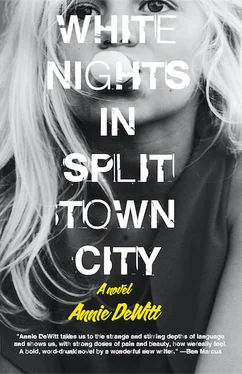
![Элизабет Ленхард - Свидание со смертью[Date With Death]](/books/79651/elizabet-lenhard-svidanie-so-smertyu-date-with-dea-thumb.webp)



